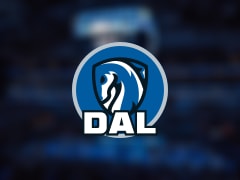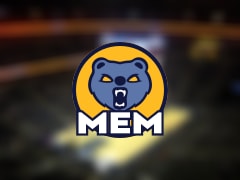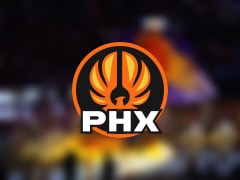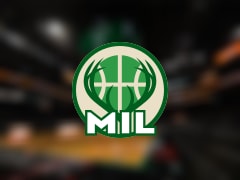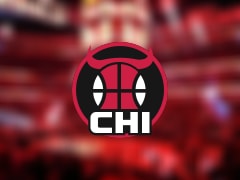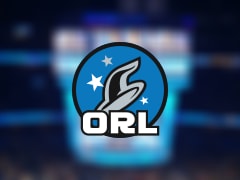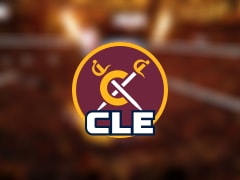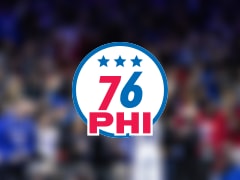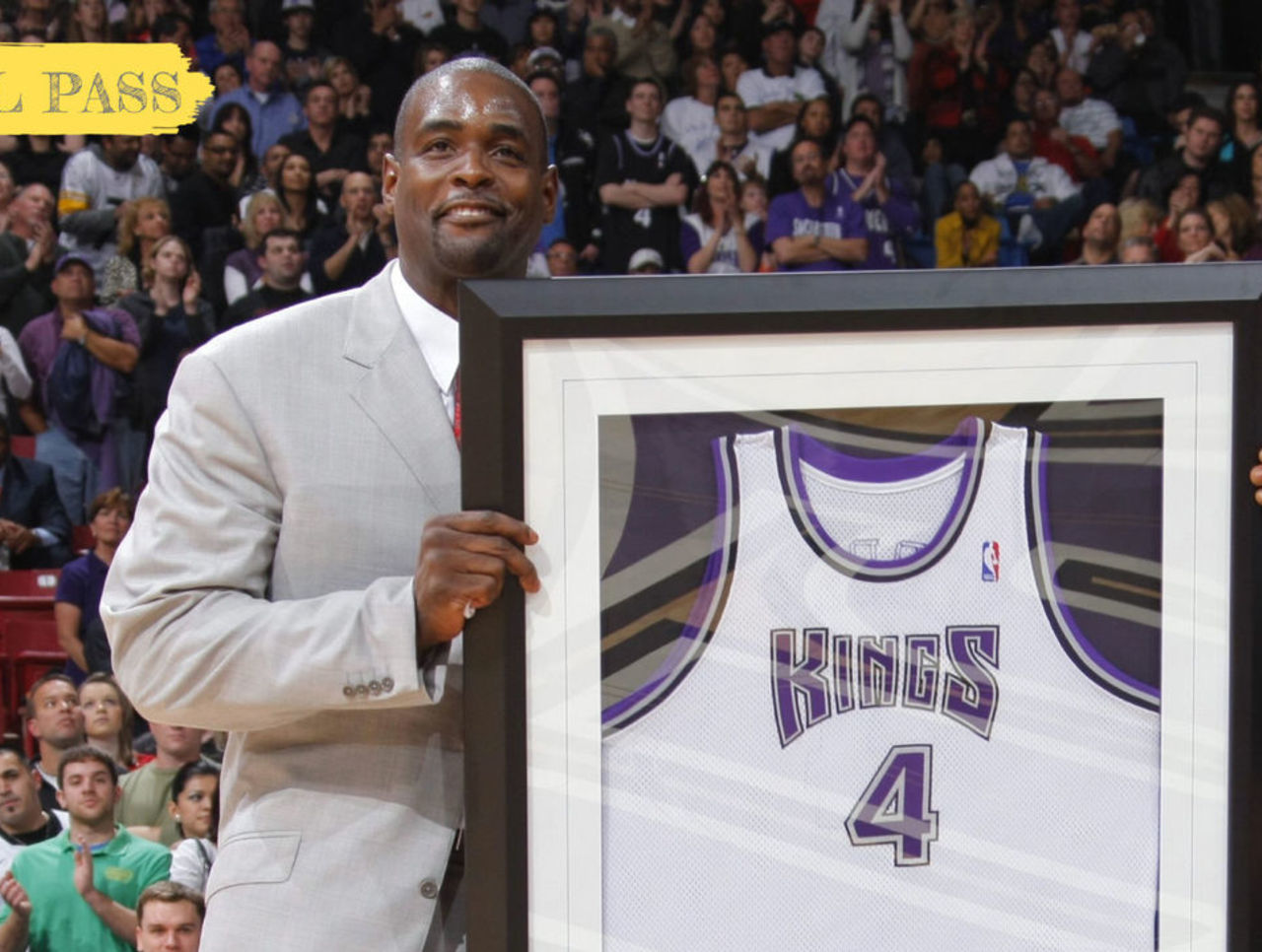
名人堂辩论是体育界争论的一个主要问题——一个运动员是否积累了在他们运动中最优秀的运动员中获得荣誉的资格,这是一杯啤酒讨论的主要素材。我们关注的是一批我们认为有资格获得这一殊荣但尚未入选他们体育名人堂的球员。
对于克里斯·韦伯来说,被拒绝进入篮球名人堂已经成为每年的传统,这可以追溯到他2013年获得资格的第一年。在这七年的冷落中,他一直保持或接近斯普林菲尔德最佳球员名单的首位。
然而,随着一年一年的过去,他最终入职的前景似乎变得更加渺茫。这个秘密的投票机构是否仅仅是认定韦伯不是名人堂成员?如果是,为什么?
让我们从他值得考虑的原因开始吧。韦伯在很多方面都是一个变革型的大人物。他和其他任何人一样,在将权力前进的范式从一个以肌肉和身体为导向的位置转变为一个由技巧和技巧定义的位置上,他扮演着同样重要的角色。这并不是说韦伯缺乏前一种特质——他的比赛仍然充满力量,他可以用武力压倒某些对手。但使他在同龄人中独树一帜的是他更出色的技能。
他不是一个三分投手,但他拥有你能要求的每一个6英尺10英寸的身体的后卫相邻的工具。他可以控制球,跑动,把其他和他一样大小的球员从弹跳中烤出来,改变速度和方向,最明显的是,他可以传球。他是现代点前锋的鼻祖之一。
虽然他不经常控球,但韦伯有点像一个原始的本西蒙斯,有着更完整的得分包。在他的运动巅峰时期,他是一个在露天场地上的怪物,他拥有一个高效的半场面对面的比赛,充满了假肩、旋转动作和诡计多端的结束,并在爆炸性的第一步的支持下。
洛基·韦德纳/NBA/盖蒂图片社
他职业生涯中最重要的一段是1998年到2003年的五年,他都是在萨克拉门托国王队效力的,在这段时间里,他进入了整个NBA,并在每个赛季的MVP投票中进入前10名。在所有入选的NBA球员中,有四位是二线或更好的。总的来说,在他7年的萨克拉门托执教期间,他场均23.5分,10.6个篮板,4.8次助攻,1.5次抢断和1.5次盖帽,同时帮助沃尔贝戈内的球队成为一支强大的球队。
当他在1998年通过交易来到这里时,国王是一支27胜的球队,在过去的12年里只进过一次季后赛,自从1982-83赛季他们还在堪萨斯城打球以来就没有过一个胜利的赛季。他们每年都能进入季后赛,在韦伯最后的四个赛季里,他们至少赢了55场比赛,至少打进了西部半决赛。
做一个优秀的经销商需要眼光和触觉。韦伯既有黑桃,又有一丁点天分,这让他看起来既有趣又有效。除了他们的成功之外,风格迥异的国王队可能是21世纪初最具娱乐性的球队,韦伯与此有很大关系。
萨克拉门托的高强度进攻是围绕着他的战术本能:他有能力抓住和转移,或者从上半场发起半场进攻,或者在门柱上作为一个双队磁铁来助攻。他对中场休息的渴望(无论是作为一名控球手或是一辆拖车在车道上)以及他愿意在球场出口处连续三次传球,让国王队在这样做之前加快节奏真的很流行。在前面提到的五个赛季中,有四个赛季,他们的速度在NBA排名第一;在其他赛季中,他们排名第二。
在千禧年之交,还有很多其他因素促成了国王队的崛起:佩贾·斯托贾科维奇成为一名6英尺10的神枪手和独角兽;杰森·威廉姆斯的华丽控球后卫,后来迈克·比比的稳定控球后卫;道格·克里斯蒂顽强的防守;弗拉德·迪瓦克自己品牌的大个子传球天才。但在他们最好的赛季,韦伯是他们最重要的球员,他把一切都联系在一起。自从2004-05赛季中途交易了他之后,这家球队还没有赢得季后赛系列赛。
2004年韦伯和佩贾·斯托贾科维奇。洛基·韦德纳/NBA/盖蒂图片社
虽然他们可能一直被视为是因为他们无法完全兑现-特别是在2001-02赛季,他们赢得了联赛最高的61场比赛-但这些国王是十年来最值得纪念的球队之一。在迈克·普拉达的无头衔排名中,他们被选为四支从未赢得过冠军的球队之一。
这可以为韦伯辩护,也可以诅咒他,这取决于你如何看待它。他在重大时刻畏缩的批评给他的遗产蒙上了一层阴影,这种指责通常归结为两个特别的灾难:1993年在密歇根的最后一个赛季,他在全国冠军赛上叫停了不可用的时间,以及他在第四节消失的表演和2002年西部决赛第七场比赛中的加时赛湖人队。
还有其他一些杠杆率较低的下跌。与大多数名人堂球员相比,他的季后赛履历总体上并不令人满意,也没有达到常规赛的标准。除了2006-07赛季的活塞队之外,他所效力的非国王队中没有一支球队能晋级首轮。有人对他的风格和整体作品提出了合理的批评。他从来没有像他身体上的工具所显示的那样进行防守。他列出的华而不实的偷窃和街区编号更多的是他喜欢走捷径的产物,而不是他在这一层楼的敏锐性或承诺的反映。
人们可以对无形的东西挑刺,比如说他并不总是最讨人喜欢的队友。1993年,勇士为了晋升和第一次选秀而交换了彭妮·哈达维(以及三名未来的第一轮)后,韦伯在仅仅一个赛季后就被迫离开了金州,因为他们都对教练唐·纳尔逊不满。在定居萨克拉门托之前,他在华盛顿度过了一段不受欢迎的日子,然后在费城度过了一段坎坷的后国王时期。
他的案子也缺乏耐用性和寿命。韦伯总是与伤病作斗争;他只有6个赛季打了70场以上的比赛,在他15年的职业生涯中,他平均每个赛季只打55场比赛。在2003年西部半决赛对阵小牛的第二场比赛中,他撕裂了半月板,这是一场竞争激烈的系列赛,59胜的国王在七场比赛中输掉了比赛,随后接受了微骨折手术。这削弱了他的爆发力,过早地结束了他的巅峰时期,把他变成了一个脚踏实地的大个子,在进攻时经常被降级为跳投,而在防守上则不得不转为中锋。
洛基·韦德纳/NBA/盖蒂图片社
即使在韦伯年富力强的时候,一些先进的指标也淡化了韦伯的效率,主要是因为有效得分从来不是他的囊中之物。他以51.3%的命中率结束了自己的职业生涯,远低于一个大个子球员的平均得分,即使是一个比大多数人更不注重内线的球员,也打过篮球的死球时代。Basketball Reference的名人堂概率计算器仅根据他在NBA的战绩就给了他14.6%的机会进入。
当然,奈史密斯名人堂并不局限于NBA的功绩,但试图将韦伯的大学生涯纳入自己的案例并不能简化事情。一方面,如果我们看过去臭名昭著的暂停电话,我们可以毫无疑问地说,他是Fab Five最好的球员,标志性的狼獾队在韦伯的两个赛季都在全国冠军赛中获胜。另一方面,根据官方记录,韦伯从未真正打过大学篮球。密歇根大学在一项调查显示,他在学生时代接受了一位助教的资助,因此他不得不取消了他在任期内获得的所有荣誉和该项目累积的所有胜利。
名人堂评选委员会的不透明性尤其令人沮丧。选民关心NCAA严苛的业余规则的神圣性吗?当公众舆论开始认识到大学体育的剥削性质时,他们会对韦伯持有这样的丑闻吗?
因为除此之外,即使承认困扰他职业生涯的缺点、伤病和失望,也很难质疑韦伯在名人堂的诚意。如果国王队在2002年战胜湖人队赢得了西部决赛的胜利——在第四场比赛中一个神奇的罗伯特·霍里的蜂鸣器,后来又被第六场主裁判的争议所破坏——他们几乎肯定会在总决赛中击败篮网,而韦伯也几乎肯定已经在斯普林菲尔德了。除了极少数例外,任何曾经是冠军球队中最好的球员的人都能入选。
韦伯的案子在没有戒指的情况下仍然有效,即使它不是很坚固。他还要等多久才能接到电话?
原标题:
Will Chris Webber ever get his due?
原文:
Hall of Fame debates are a staple of sports arguments - whether a player's amassed the credentials to be honored among the very best in their sport is prime fodder for discussion over a beer. We're spotlighting a collection of players who we believe are deserving of the distinction but haven't yet been inducted into their sports' Halls of Fame.
For Chris Webber, being denied entry to the Basketball Hall of Fame has become an annual tradition, one that dates back to his first year of eligibility in 2013. Throughout those seven years of snubs, he's remained at or near the top of the list of the best eligible players not in Springfield.
With each passing year, though, the prospect of his eventual induction seems to become a bit more remote. Has the secretive voting body simply decided that Webber isn't a Hall of Famer? And if so, why?
Let's start with the reasons he deserves consideration. Webber was in many ways a transformational big man. He had as significant a role as anyone in shifting the power forward paradigm from a position oriented around brawn and physicality to one defined by skill and finesse. That isn't to say that Webber lacked the former traits - his game still featured plenty of power, and he could overwhelm certain opponents with force. But what made him unique among his peers was his finer skills.
He wasn't a 3-point shooter, but he possessed every other guard-adjacent tool you could ask for in a 6-foot-10 body. He could handle the ball, run the break, roast other players his size off the bounce, change speeds and directions on the drive, and, most notably, he could pass. He was one of the progenitors of the modern point forward.
Though he didn't handle the ball quite as often, Webber was something like a proto Ben Simmons with a far more complete scoring package. At his athletic peak, he was a monster in the open floor and possessed a highly effective half-court face-up game replete with shoulder fakes, spin moves, and crafty finishes, abetted by an explosive first step.
Rocky Widner / NBA / Getty Images
The defining stretch of his career was a five-year run between 1998 and 2003, all with the Sacramento Kings, in which he made All-NBA and finished in the top 10 in MVP voting every season. Four of those All-NBA selections were second team or better. All told, during his seven-year tenure in Sacramento, he averaged 23.5 points, 10.6 rebounds, 4.8 assists, 1.5 steals, and 1.5 blocks while helping turn the woebegone franchise into a powerhouse.
When he arrived via trade in 1998, the Kings were a 27-win team that had made the playoffs just once in the previous 12 years and hadn't had a winning season since 1982-83, when they still played in Kansas City. They made the playoffs every year Webber was there, and in each of his final four full seasons, they won at least 55 games and reached at least the Western Conference semifinals.
Being a great distributor demands both vision and touch. Webber had both in spades, along with a dash of flair that made him as fun to watch as he was effective. On top of their success, the stylistically distinct Kings were probably the most entertaining team of the early 2000s. Webber had plenty to do with that.
Sacramento's high-powered offense revolved around his playmaking instincts: his ability to grab and go in transition and to either initiate half-court sets from up top or facilitate as a double-team magnet from the post. His appetite for running the break (either as a ball-handler or a trailer filling the lane) and his willingness to sling three-quarter-court outlet passes allowed the Kings to push the tempo before doing so was really in vogue. In four of the five aforementioned seasons, they ranked first in the NBA in pace; they ranked second in the other.
Plenty of other factors contributed to the Kings' ascent at the turn of the millennium: Peja Stojakovic's emergence as a 6-foot-10 sharpshooter and unicorn in his own right; the flashy point guard play of Jason Williams and later the steady point guard play of Mike Bibby; Doug Christie's dogged defense; Vlade Divac's own brand of big-man passing genius. But in their best seasons, Webber was their most important player - the guy who tied everything together. The franchise has yet to win a playoff series since trading him midway through the 2004-05 campaign.
Webber and Peja Stojakovic in 2004. Rocky Widner / NBA / Getty Images
Though they'll perhaps always be seen as a Could Have Been because of their inability to fully cash in - especially in 2001-02, when they won a league-high 61 games - those Kings were among the most memorable teams of the decade. In Mike Prada's Titleless bracket, they were voted one of the four best teams to never win a championship.
That could vindicate Webber or damn him, depending on how you look at it. His legacy is clouded by a critique that he quailed in big moments, a charge that's typically boiled down to two particular disasters: the unavailable timeout he called in the national championship game in his final season at Michigan in 1993, and his disappearing act in the fourth quarter and overtime in Game 7 of the 2002 West finals against the Lakers.
There were other, lesser high-leverage letdowns. His postseason resume as a whole is underwhelming compared to most Hall of Famers and didn't measure up to his regular-season standards. None of the non-Kings teams he played for except the 2006-07 Pistons, for whom he played a bit part, made it past the first round. There are legitimate criticisms of his style and overall body of work. He never defended as well as his physical tool set suggested he could. The gaudy steal and block numbers he put up were more a product of his penchant for shortcuts than a reflection of his acumen or commitment at that end of the floor.
One can pick nits about intangibles, like the fact that he wasn't always the most agreeable teammate. After the Warriors traded the pick that became Penny Hardaway (along with three future first-rounders) in order to move up and draft him first overall in 1993, Webber forced his way out of Golden State after just one season amid mutual discontent with coach Don Nelson. He wore out his welcome in Washington before settling down in Sacramento and then had a rocky post-Kings stint in Philadelphia.
His case also suffers from a lack of durability and longevity. Webber always struggled with injuries; he had just six seasons in which he played 70 or more games, and he averaged just 55 per season over his 15-year career. He tore his meniscus in Game 2 of the 2003 West semis against the Mavericks - a hotly contested series that the 59-win Kings lost in seven games - and subsequently underwent microfracture surgery. That sapped his explosiveness and prematurely ended his prime, turning him into an earthbound big who was often relegated to jump-shooting on offense and had to be shifted to center on defense.
Rocky Widner / NBA / Getty Images
Even in his prime, some advanced metrics downplayed Webber's effectiveness, mainly because efficient scoring was never his bag. He finished his career with a 51.3% true shooting mark, well below average for a big man - even one who was less interior-oriented than most and played through basketball's version of the dead-ball era. Basketball Reference's Hall of Fame Probability calculator gives him just a 14.6% chance of getting in based on his NBA exploits alone.
The Naismith Hall of Fame is not limited to NBA exploits, of course, but trying to factor Webber's college career into his case doesn't simplify things at all. On the one hand, if we look past the infamous timeout call, we can say beyond a doubt that he was the best player on the Fab Five, the iconic Wolverines team that made the national championship game in both of Webber's seasons there. On the other hand, according to the official record, Webber never actually played college basketball. Michigan had to vacate all of his accolades and all the wins the program accrued during his tenure after an investigation revealed that he accepted money from a booster while he was a student.
Here's where the opacity of the Hall of Fame's selection committee becomes particularly frustrating. Do voters care about the sanctity of the NCAA's draconian amateurism rules? Is that long-ago scandal the kind of thing they'd hold against Webber at a time when public opinion is beginning to recognize the exploitative nature of college sports?
Because beyond that, even acknowledging the warts and the injuries and the disappointments that plagued his career, it's hard to dispute Webber's Hall of Fame bona fides. If the Kings had won that West final over the Lakers in 2002 - a series that turned on a miraculous Robert Horry buzzer-beater in Game 4 and was later marred by a Game 6 officiating controversy - they would've almost certainly gone on to beat the Nets in The Finals, and Webber would almost certainly be in Springfield already. With very few exceptions, anyone who's ever been the best player on a championship team has gotten in.
Webber's case holds up without the ring, even if it isn't quite ironclad. How much longer will he have to wait before getting the call?

